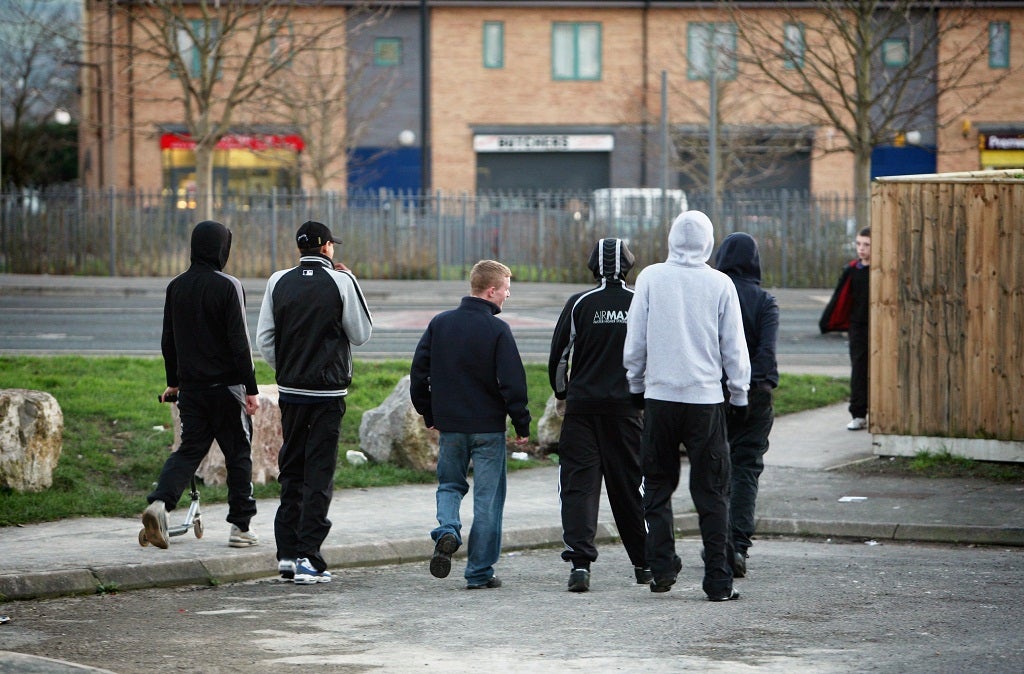How will the world’s youth remember 2012?
How do they feel about the planet they are to inherit? In the year that the Occupy protest movement spread from Wall Street to the world, and riots gripped city streets from Athens to Madrid, the frustrations of the millennial generation have come into sharp focus. Will this past 12 months be viewed as a time of strife and division, of endless economic turmoil, of civil unrest, and violence in the streets? The financial crisis is the defining event of their lives; unemployment, debt and inequality loom ever larger. United by adversity and brought together by technology, millennials’ world view is tainted by bitter experience, and their idealism is tempered by pragmatism.
It’s a reality that was skilfully captured in one of the year’s most eye-catching marketing initiatives. In September, posters, press ads and web films for Benetton’s “Unemployee of the Year” campaign set out to highlight “nearly 100 million people under 30 in search of a job”, and invited the young unemployed to write and “tell us about your non-work experience”.
And it was against this background that the company I work for, Viacom, one of the world’s biggest media companies, commissioned a landmark research study entitled “The Next Normal”, designed to take a detailed look inside the minds of thousands of millennials around the world. Was it really all doom and gloom?
Much of Viacom’s content is designed for young people, and as the owner of MTV, Nickleodeon and Comedy Central – channels that have shaped youth culture for years – we need to learn as much as we can about what makes the youth audience tick. But this latest piece of research was bigger than anything we had previously undertaken; “The Next Normal” is the biggest single survey of the millennial generation to date.
Our team interviewed nearly 15,000 people – born between 1982 and 2003 – in 24 countries, on every continent. We asked them dozens of questions about their hopes and dreams, their insights and attitudes. We wanted to know how they felt about their families and friends, their values and prospects, their relationship with technology, and many other other topics. A key decision was to extend the project to places we’d never canvassed this way before, and where seismic changes were under way, such as Greece and Egypt.
So what did we discover? Well, the breadth and depth of the data is so substantial that it will take us some time to paint the complete picture. But the theme that rapidly emerged forced us to reassess any preconceived notions of cynical, disillusioned, world-weary, self-centred millennials – not “Generation Me”, but rather “Generation We”. Yes, they cite the global financial collapse as the event with the biggest impact on their lives, shaping their memories, emotions and aspirations. An average 70 per cent of the young people we spoke to feel personally touched by its effects. Those in Italy (85 per cent), Spain (84 per cent), and Greece (80 per cent) feel it most acutely. Even in countries comparatively unscathed, such as Australia, 59 per cent have felt the impact.
Yes, they believe job insecurity will only increase, and only a quarter expect to earn more than their parents’ generation. Yes, they are resigned to low-wage employment and short-term contracts. But despite such sober acknowledgements of the economic realities, the vast majority demonstrated a strong sense of optimism; 76 per cent going so far as to describe themselves as “very happy”. Not only this, but when we asked them separately about whether they experienced stress in their lives, fewer than one in three felt it was a word that applied to them at all.
Of course, in an unequal world, happiness isn’t evenly distributed, and some places were undoubtedly happier than others. But this “millennial paradox” – that despite the problems they see around them, tomorrow’s adults find plenty to smile about – is both heartening and humbling.
When national governments are tightening their belts and narrowing their horizons (overseas aid and development budgets are estimated to have decreased by as much as 25 per cent since 2008, for example), the planet’s youth is more globally focused, more engaged, more curious, more tolerant, and more connected than ever.
Eighty-seven per cent of those we interviewed are actively curious about the world around them, keen to learn and communicate. Empowered by technology, but not defined by it, they thirst for new experiences – sharing and connecting with others as instinctively as breathing.
The overwhelming majority – 93 per cent – believe it’s their responsibility to treat all people as equals, regardless of race, gender, sexuality or politics. National pride may be strong (83 per cent), but 73 per cent see immigration as economically and culturally beneficial. For almost all, racism has become an anachronism.
The results of “The Next Normal” study have given all of us much to feel good about in 2013. After all, it’s hard not to be inspired by the energy of youth – especially when that energy is so refreshingly positive. We live in turbulent times, but the future may be brighter than many of us imagine. Perhaps 2012 should be remembered as the year the millennial generation came of age – and showed the rest of us the way.
Dave Lynn is Managing Director of Viacom International Media Networks


Join our commenting forum
Join thought-provoking conversations, follow other Independent readers and see their replies